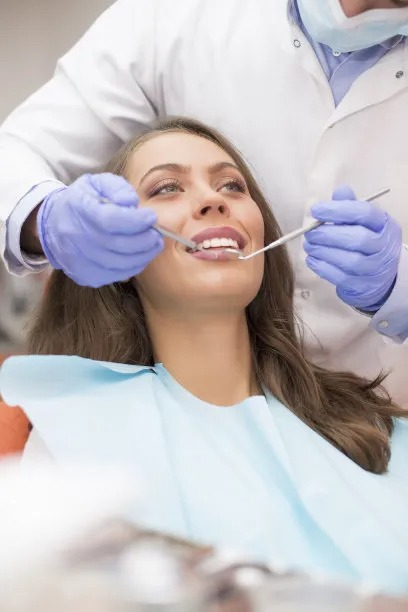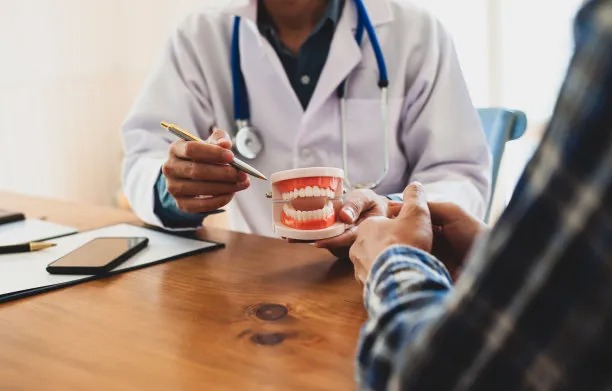Summary: Dental fillings are essential for treating cavities and restoring dental health. However, certain precautions should be taken before and after the procedure to ensure optimal outcomes. This article outlines crucial steps, including proper consultation with your dentist, maintaining good oral hygiene, dietary considerations, and attending follow-up appointments. By adhering to these essential precautions, patients can enhance their recovery and overall oral health after dental filling procedures.
1. Importance of Consultation with Your Dentist

Before undergoing any dental procedure, particularly when considering fillings, it is vital to have a thorough consultation with your dentist. During this discussion, you should express any concerns you might have. This allows the dentist to assess your oral health comprehensively and determine the most appropriate treatment plan tailored to your specific needs.
Your dentist can provide information regarding the type of filling material that is best suited for you, as well as the potential risks associated with the procedure. They can also clarify any questions related to anesthesia options, which can alleviate anxiety for those who may be apprehensive about dental visits.
Additionally, your dentist may review your medical history to identify any factors that could affect the procedure, such as allergies or existing health conditions. This process ensures that moving forward with treatment is safe and effective.
2. Maintaining Excellent Oral Hygiene Standards
Good oral hygiene is essential before and after receiving dental fillings. Keeping your mouth clean can help minimize the risk of infection and promote faster healing. Before the filling procedure, brushing and flossing your teeth thoroughly is crucial to remove any food particles or plaque that may linger.
After the procedure, it is equally important to continue a strict oral hygiene regime. You should wait for a recommended duration, usually 24 hours, before resuming your regular brushing and flossing routine. Gently rinsing your mouth with warm salt water can be beneficial during the healing period to maintain cleanliness without causing irritation.
Furthermore, consider using an antibacterial mouthwash post-treatment. This can help kill any lingering bacteria in your mouth and further reduce the risk of complications, such as infections or sensitivity around the filling site.
3. Dietary Considerations After Your Filling
Your diet can significantly impact the success of your dental filling. Initially, it is advisable to avoid hard, sticky, or chewy foods for at least 24 hours after the procedure. These types of foods can put unnecessary pressure on the new filling, potentially leading to damage or dislodgment.
In the following days, opt for a soft diet consisting of items like yogurt, applesauce, or soup. Avoiding temperature extremes—such as very hot or cold beverages—can also help minimize sensitivity. Listening to your body and making dietary adjustments based on how your mouth feels is important during this recovery phase.
Additionally, staying hydrated is key. Drinking plenty of water not only aids your recovery but also helps flush out bacteria and food particles, ensuring a healthier environment for your filling.
4. The Importance of Follow-Up Appointments
After receiving a dental filling, follow-up appointments should never be underestimated. Regular check-ups allow your dentist to monitor the condition of the filling and surrounding teeth. These visits are crucial for diagnosing any issues that may arise, such as wear or decay, which can occur even after treatment.
During follow-up appointments, your dentist will evaluate how well the filling is holding up and whether any adjustments are needed to improve bite alignment. This is especially important as improper alignment can lead to discomfort and further dental complications if left unchecked.
Moreover, these appointments provide an opportunity for you to discuss any concerns or changes you have experienced since the filling. Keeping an open line of communication with your dentist ensures you receive the best possible care and maintain optimal oral health.
Summary:
In summary, taking essential precautions before and after dental filling procedures can significantly affect your recovery and overall oral health. It is paramount to have thorough consultations with your dentist, uphold excellent oral hygiene, follow dietary guidelines, and attend all follow-up appointments. These steps collectively contribute to achieving the best outcomes following dental treatment.
This article is compiled by Vickong Dental and the content is for reference only.
Vickong Dental
Vickong Dental is a large medical group established in Hong Kong in 2008 by professors from well-known medical universities in Guangdong and Hong Kong, as well as medical doctors from key national '985' universities (including Master's supervisors and senior professors). The chain of branches brings together expert dentists with PhDs and Master's degrees from Hong Kong and Mainland China, committed to providing high-quality dental treatment.
"Vickong Dental Practices the University Motto of 'Healing and Serving Society,' with a Stable Operation for Sixteen Years. It Has Been honored with Hong Kong Enterprise Leaders's Choice,' and is a Global Trusted Implant Center for the Nobel Implant System. Recommended by Hong Kong Metro Broadcast and Guangdong Television, it Serves Customers from Over Thirty Countries and Regions, Gaining the Trust and Favor of Citizens from the Guangdong-Hong Kong-Macau Greater Bay Area and Surrounding Cities.

Thousands of customers' unanimous praise
The most recognized and highly recommended dental service by customers in the Guangdong-Hong Kong-Macau Greater Bay Area
We Ensure You Receive Detailed Care and Attention Here
Hong Kong standards, Shenzhen prices, Your Trusted English-speaking dentists

Vickong Dental Medical-Grade Instrument Disinfection Process
Vickong Dental Medical-Grade Instrument Disinfection Process

Vickong Dental Chain: A Warm and Comfortable Environment for Treatment






Appointment Hours

Q&A
Why choose Vickong Dental?
Vickong Dental practices the university motto 「Medicine to Benefit Society」, with each branch bringing together highly qualified dentists with doctoral and master’s degrees from Hong Kong and the Mainland, and has maintained seventeen years of steady operation。Recipient of 「2024 Hong Kong Enterprise Leaders Brand」, 「2025 Hong Kong Enterprise Leaders Brand」, a Nobel Biocare Global Trusted Implant Center, and a brand recommended by Metro Radio Hong Kong and Guangdong TV。
To date, we have served customers from more than thirty countries and regions,earning exceptionally high word-of-mouth recognition and trusted recommendations from residents across the Guangdong-Hong Kong-Macao Greater Bay Area and surrounding cities
We have eight major branches in Zhuhai、Shenzhen,and a consultation and service assurance center in Hong Kong,so you can book a free consultation at any time for any questions,which is very reassuring.
If I do not accept the quotation after the CT scan, will I be charged??
No! As long as the actual treatment has not started, you will not be charged any fees.
Will there be any additional charges during the treatment process?
No, there won’t be any additional charges. Before treatment begins, we will clearly explain the treatment plan and its corresponding fees. Only after the patient agrees and signs the consent form will we proceed with the dental service.
Can I pay in Hong Kong dollars?
Yes. Vickong Dental accepts payment in Hong Kong dollars. The amount will be converted based on the exchange rate of the day, and the applicable rate will be clearly communicated to you in advance.
Can I reschedule my appointment at any time?
Yes. Please contact us via **WeChat** or **WhatsApp** as early as possible, providing your original appointment time and details, along with your preferred new date and time slot for rescheduling.













